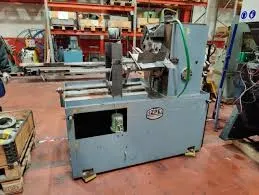
-
 Afrikaans
Afrikaans -
 Albanian
Albanian -
 Amharic
Amharic -
 Arabic
Arabic -
 Armenian
Armenian -
 Azerbaijani
Azerbaijani -
 Basque
Basque -
 Belarusian
Belarusian -
 Bengali
Bengali -
 Bosnian
Bosnian -
 Bulgarian
Bulgarian -
 Catalan
Catalan -
 Cebuano
Cebuano -
 Corsican
Corsican -
 Croatian
Croatian -
 Czech
Czech -
 Danish
Danish -
 Dutch
Dutch -
 English
English -
 Esperanto
Esperanto -
 Estonian
Estonian -
 Finnish
Finnish -
 French
French -
 Frisian
Frisian -
 Galician
Galician -
 Georgian
Georgian -
 German
German -
 Greek
Greek -
 Gujarati
Gujarati -
 Haitian Creole
Haitian Creole -
 hausa
hausa -
 hawaiian
hawaiian -
 Hebrew
Hebrew -
 Hindi
Hindi -
 Miao
Miao -
 Hungarian
Hungarian -
 Icelandic
Icelandic -
 igbo
igbo -
 Indonesian
Indonesian -
 irish
irish -
 Italian
Italian -
 Japanese
Japanese -
 Javanese
Javanese -
 Kannada
Kannada -
 kazakh
kazakh -
 Khmer
Khmer -
 Rwandese
Rwandese -
 Korean
Korean -
 Kurdish
Kurdish -
 Kyrgyz
Kyrgyz -
 Lao
Lao -
 Latin
Latin -
 Latvian
Latvian -
 Lithuanian
Lithuanian -
 Luxembourgish
Luxembourgish -
 Macedonian
Macedonian -
 Malgashi
Malgashi -
 Malay
Malay -
 Malayalam
Malayalam -
 Maltese
Maltese -
 Maori
Maori -
 Marathi
Marathi -
 Mongolian
Mongolian -
 Myanmar
Myanmar -
 Nepali
Nepali -
 Norwegian
Norwegian -
 Norwegian
Norwegian -
 Occitan
Occitan -
 Pashto
Pashto -
 Persian
Persian -
 Polish
Polish -
 Portuguese
Portuguese -
 Punjabi
Punjabi -
 Romanian
Romanian -
 Russian
Russian -
 Samoan
Samoan -
 Scottish Gaelic
Scottish Gaelic -
 Serbian
Serbian -
 Sesotho
Sesotho -
 Shona
Shona -
 Sindhi
Sindhi -
 Sinhala
Sinhala -
 Slovak
Slovak -
 Slovenian
Slovenian -
 Somali
Somali -
 Spanish
Spanish -
 Sundanese
Sundanese -
 Swahili
Swahili -
 Swedish
Swedish -
 Tagalog
Tagalog -
 Tajik
Tajik -
 Tamil
Tamil -
 Tatar
Tatar -
 Telugu
Telugu -
 Thai
Thai -
 Turkish
Turkish -
 Turkmen
Turkmen -
 Ukrainian
Ukrainian -
 Urdu
Urdu -
 Uighur
Uighur -
 Uzbek
Uzbek -
 Vietnamese
Vietnamese -
 Welsh
Welsh -
 Bantu
Bantu -
 Yiddish
Yiddish -
 Yoruba
Yoruba -
 Zulu
Zulu
steel thread rolling machine products
Steel Thread Rolling Machine An Indispensable Tool in Metalworking
In the realm of metalworking, the precision and efficiency of manufacturing processes play a crucial role in determining the quality of the final product. One such indispensable tool that has gained prominence is the steel thread rolling machine. This innovative equipment specializes in the deformation of steel to create threads, which are essential in a variety of applications including construction, automotive, and machinery manufacturing.
Understanding Thread Rolling Technology
Thread rolling is a cold working process that utilizes high-pressure rollers to shape and form threads on a cylindrical workpiece. Unlike traditional machining methods that subtract material from the workpiece, thread rolling displaces the surface material, resulting in threads with enhanced strength and integrity. This process is particularly advantageous for steel components, as it improves fatigue resistance and reduces the likelihood of cracking.
Steel thread rolling machines are designed to accommodate various sizes and types of workpieces, making them versatile in industrial settings. The key components of these machines include the threading rollers, a support mechanism for the workpiece, and an adjustable feed system that allows for precise control of the threading process. The ability to adjust the speed and pressure of the rollers further contributes to the versatility of these machines, enabling manufacturers to produce custom threads as per their specific requirements.
Advantages of Using Steel Thread Rolling Machines
1. Enhanced Strength and Durability Threads produced through rolling exhibit superior mechanical properties compared to those obtained through cutting. This is primarily due to the hardening effect that occurs during the deformation process, making the threads stronger and more resistant to wear and tear.
steel thread rolling machine products

2. Reduced Waste Since thread rolling is a method of reshaping the material rather than removing it, there is significantly less waste generated compared to traditional machining methods. This not only contributes to cost savings but also aligns with environmentally sustainable manufacturing practices.
3. Higher Production Efficiency Steel thread rolling machines can operate at high speeds, allowing for rapid production of threaded components. This is particularly beneficial in industries where large quantities of threaded parts are required, such as in the manufacturing of bolts, nuts, and screws.
4. Cost-Effectiveness While the initial investment in a quality thread rolling machine may be substantial, the long-term savings associated with reduced material waste, lower energy consumption, and faster production times can lead to overall cost reductions.
Applications of Steel Thread Rolling Machines
Steel thread rolling machines are used across various industries. In the automotive sector, they are essential for producing high-strength fasteners used in assembly lines. The construction industry relies on rolled threads for anchor bolts and reinforcing bars, which are critical for structural integrity. Moreover, machinery manufacturers utilize thread rolling to create components that require specific thread profiles for assembly and operation.
Conclusion
The steel thread rolling machine is a vital piece of equipment that enhances the efficiency and quality of metalworking processes. With its ability to produce high-strength threads while minimizing waste and reducing operational costs, it has become a staple in various industries. As technology continues to advance, it is likely that we will see further innovations in thread rolling machinery, enabling manufacturers to meet the ever-increasing demand for precision-engineered components. For companies looking to improve their production capabilities and product quality, investing in a steel thread rolling machine is a step towards achieving operational excellence.
